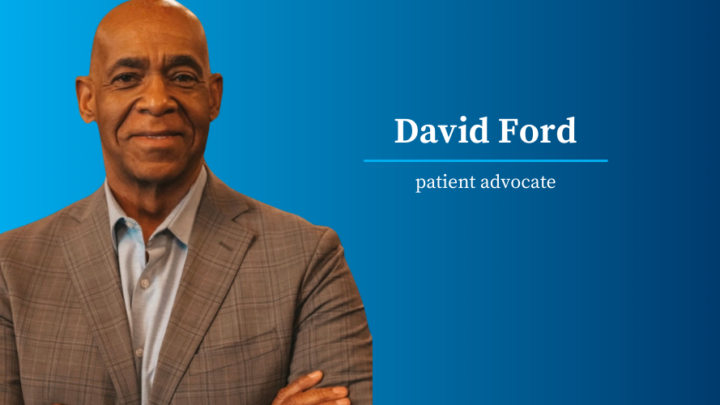A Journey of Resilience and Advocacy in a Complex Health Care Landscape

TOPLINES
In early 2015, during a routine doctor’s appointment, David Ford’s physician recommended a colonoscopy. However, it wasn’t until three months later, when Ford, a senior government relations manager with Southern California Edison, experienced rectal bleeding on his way to work, that the urgency of his situation became apparent. An emergency surgery revealed a tumor on his intestines, leading to a diagnosis of colorectal cancer — the second leading cause of death from cancer in the United States.
Navigating the Delivery System
Ford was thrust into a challenging health care journey, facing the intricacies of cancer treatment. Navigating the health care system added another layer of complexity. Ford had to coordinate appointments across different health care providers, understand the nuances of his insurance coverage and make informed decisions about his treatment options. The difficulty of this process was exacerbated by the need to decipher medical jargon and understand the implications of different medical procedures and tests.
Throughout his treatment, Ford, a Black man, became acutely aware of the disparities in health care access and the additional challenges faced by those in minority communities. Black Americans have a 20% higher incidence of colorectal cancer and a 40% higher death rate from the disease than white Americans, underlining the urgent need for action to reduce these inequities. During a recent PBGH California Quality Collaborative (CQC) webinar that explored disparities in colorectal cancer care, Ford shared his story, recounting his delay in undergoing a colonoscopy and how his experience may have been different had he been more proactive about undergoing the screening test.
During an annual physical exam in 2018, Ford’s physician conducted a test that revealed elevated prostate-specific antigen numbers, leading to a diagnosis of prostate cancer. After undergoing radiation treatment, he was able to make a full recovery. Ford’s experience underscores the critical need for proactive health management and screening for early detection through tools such as the EpiSwitch Prostate Screening (PSE), especially in communities of color, where distrust in the health care system and barriers to accessing care are common.
A Voice for Advocacy and Change
Today, Ford serves as a member of the Cancer Action Network board, actively engaged in lobbying and advocacy efforts. His experience has fueled his commitment to cancer research, funding and policy change, making him a vocal advocate for equitable access to care.
“There’s more advocacy and education to do through outreach and connection with community-based groups, churches and national organizations to get behind this campaign because I do think that this is a civil rights crisis, particularly in the African American community,” said Ford. Ford emphasizes the importance of early detection, especially given today’s innovative technology and testing options which are less invasive and allow for greater accuracy: “Cancer is much easier to treat and deal with if it’s early… get in to see someone as soon as possible when you think something is wrong.”
Strategies to Combat Colorectal Cancer Disparities
The following key strategies can help reduce disparities in colorectal cancer care within the delivery system:
- Multi-stakeholder collaboration. Alignment among health care providers, payers, policy makers and patient advocates is essential for comprehensive care and disparity reduction.
- Patient engagement and advocacy. Engaging patients in their health care journeys, especially through preventive measures like cancer screening, is critical for early detection and treatment.
- Research and data utilization. Utilizing comprehensive data and research findings to informs policy and practice, leading to more effective screening and improved health outcomes.
- Community outreach and education. Developing community-based programs and partnerships facilitates access to screening and treatment services, building trust and awareness within communities.
CQC is working to advance health equity through programs like Equity and Quality at Independent Practices in LA County, a quality improvement collaborative for primary care practices and independent physician associations focused on reducing health disparities for Medi-Cal enrollees of color.
To learn more about disparities in colorectal cancer care and what patients, providers, health plans and purchasers can do to advance equitable care, view a recording of CQC’s latest webinar Addressing Disparities in Colorectal Cancer and access our guide to designing an effective colorectal cancer outreach campaign.


